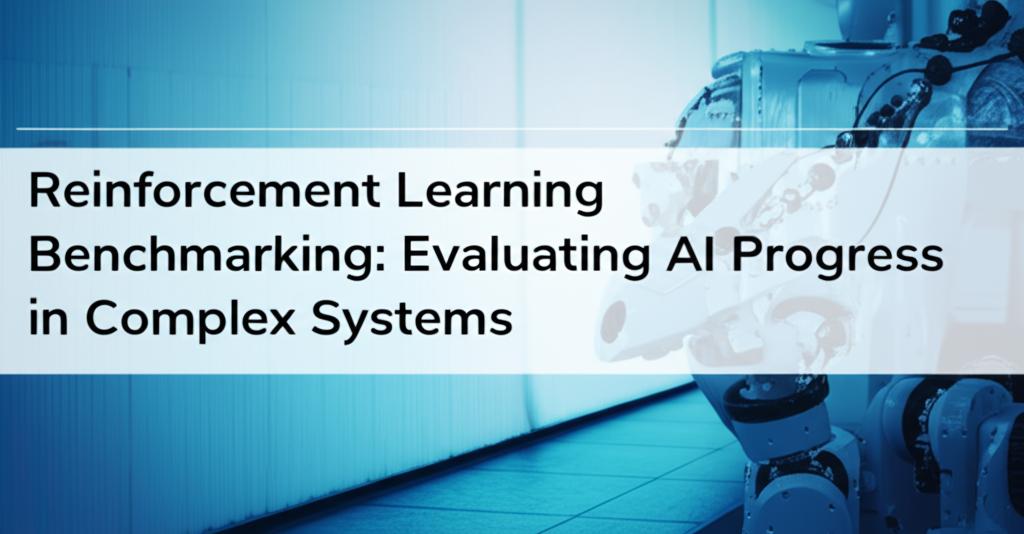Reinforcement Learning (RL) has become a important area of machine learning, focused on how intelligent agents can learn to make optimal decisions through experience in an environment. The progress in RL is often measured by benchmarking, which involves evaluating algorithms on standardized tasks and environments. This process is crucial for tracking advancements, ensuring reproducibility, and identifying areas for future research.
The Importance of Standardized BenchmarkingStandardized benchmarks play a vital role in the RL community. They provide a common ground for comparing different algorithms and approaches, making it easier to gauge which methods are most effective for specific types of problems. Without such standards, it becomes difficult to assess whether a new algorithm truly represents an improvement over existing ones. Key platforms and environments like OpenAI Gym, DeepMind Control Suite, and the Arcade Learning Environment (ALE) have been instrumental in this regard, offering a diverse set of tasks ranging from classic control problems to complex video games and robotic simulations.
Challenges in RL BenchmarkingDespite the progress, RL benchmarking faces several significant challenges:
- Reproducibility and Reliability: One of the most persistent issues is the difficulty in reproducing reported results. Variations in implementation details, hyperparameter tuning, and even random seeds can lead to different outcomes. This highlights the need for more rigorous reporting standards and statistical tools to assess the significance of results.
- Generalizability: Many RL agents trained on specific benchmarks may not perform well when faced with even slight variations in the environment or task. This lack of generalizability is a major hurdle for real-world applications. New benchmarks are emerging to specifically test for generalization across different scenarios.
- Sample Efficiency: RL algorithms often require vast amounts of interaction with the environment to learn effective policies. This high sample complexity can make training computationally expensive and impractical for many real-world systems where data collection is costly or time-consuming.
- Real-World Complexity and Safety: Simulators, while useful, often don't capture the full complexity and unpredictability of real-world environments. Transferring policies learned in simulation to physical systems (the "sim-to-real" gap) remains a significant challenge. Furthermore, in safety-critical applications like autonomous driving or robotics interacting with humans, ensuring safe exploration during learning is paramount. Benchmarks specifically designed for "safe RL" are being developed to address this.
- Evaluating Long-Horizon and Memory-Intensive Tasks: Many real-world problems require agents to plan over extended periods and remember past information to make optimal decisions. Developing benchmarks that effectively evaluate these capabilities is an ongoing area of research. New suites like MIKASA (Memory-Intensive Skills Assessment Suite for Agents) are being introduced to address this gap, particularly in areas like robotic manipulation.
- Multi-Agent Systems: As RL expands to scenarios involving multiple interacting agents, benchmarking these multi-agent reinforcement learning (MARL) systems introduces new complexities. Standardized libraries and evaluation protocols for MARL are crucial for progress in this domain.
- Real-Time Constraints: Many real-world applications require agents to make decisions under strict time constraints. Traditional RL benchmarks often don't account for the computational cost of inference. Benchmarks focusing on real-time performance are needed to evaluate algorithms for time-sensitive applications.
- Off-Dynamics Learning: Evaluating how well an RL agent can adapt when the underlying dynamics of the environment change (off-dynamics RL) is another critical area. Benchmarks tailored for this, like ODRL, are emerging to assess the adaptation capabilities of algorithms.
The field of RL benchmarking is continuously evolving to address these challenges:
- New Benchmark Suites: Researchers are developing more diverse and challenging benchmark environments. These include environments with continuous state and action spaces, tasks requiring long-term memory, multi-agent scenarios, and those with safety constraints. Examples include Safety Gym for constrained RL, Controlgym for large-scale control environments, and IntersectionZoo for urban eco-driving, which specifically tests generalizability.
- Focus on Statistical Rigor: There's a growing emphasis on using more robust statistical methods for evaluating and reporting results. This includes reporting confidence intervals, using performance profiles across multiple runs and tasks, and being cautious about relying solely on point estimates of mean or median scores. Tools like RLiable are being developed to help researchers incorporate these practices.
- Standardized Libraries and Methodologies: Efforts are underway to create libraries like BenchMARL for MARL, which aim to standardize training, configuration, and reporting across different algorithms and environments to improve reproducibility and facilitate fair comparisons.
- Quantum Reinforcement Learning Benchmarking: As quantum computing emerges, there's early work on establishing benchmarks to compare classical RL with Quantum Reinforcement Learning (QRL) approaches, assessing if and how quantum principles can offer advantages.
- Addressing Real-World Nuances: Future benchmarks will likely focus more on real-world complexities such as partial observability, non-stationary environments, and the need for explainable AI. The integration of human feedback into the learning process (RLHF) also presents unique evaluation challenges, including the potential for biases and adversarial attacks.
Benchmarking is indispensable for driving progress in reinforcement learning. While existing benchmarks have been foundational, the increasing complexity of AI systems and their application to real-world problems necessitate more sophisticated and diverse evaluation methodologies. By addressing current limitations and embracing new trends like standardized reporting, statistically sound evaluation, and benchmarks that capture real-world intricacies, the RL community can ensure that it is accurately measuring progress and effectively guiding the development of truly intelligent and reliable systems. The ongoing development of new benchmark suites, tools, and methodologies signifies a commitment to fostering more rigorous and meaningful evaluation in this rapidly advancing field.

